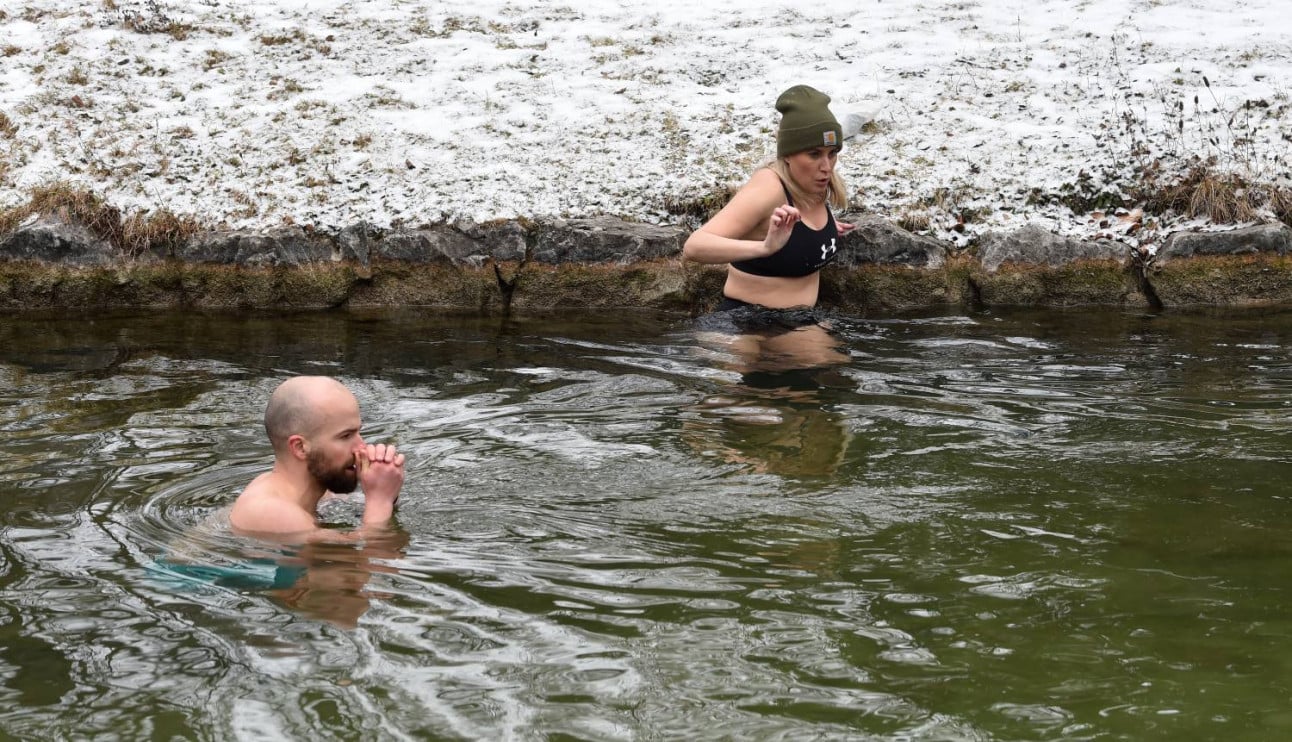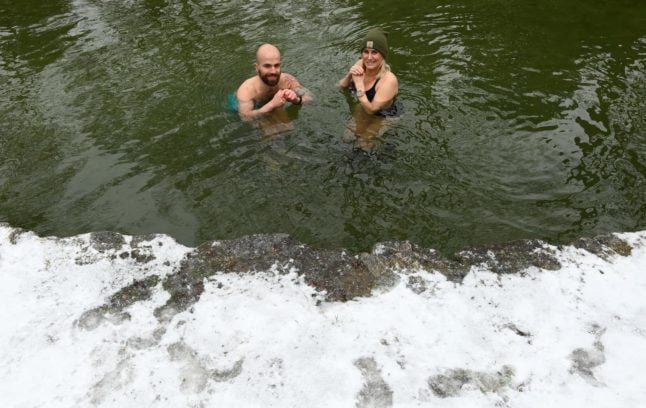“The Eisbach is one of the few places where you can still experience something a little crazy,” chuckles Franz Mayr, a 35-year-old therapist who takes a dip every week in the stream through the heart of the Bavarian capital.
His Instagram page “Munich Hot Springs”, which shows bathers keeping fit in ice-cold waters, has racked up 1,700 followers, many in recent months.
“With the swimming pools and sports halls closed, swimming in icy water is a way to set yourself a challenge, even with the pandemic,” Mayr continues.

Swimmers Irina Hey and Franz Mayr go into the water of the canal of the Eisbach river. Photo: Christof Stache/AFP
On this blustery, snowy January morning he is not the only one to plunge into the bitterly cold waters of the Eisbach, a tributary of the Isar river, through the city's main park, the resplendent Englischer Garten.
Over the course of the morning, eight swimmers put on their gear, prepare with breathing exercises and then submerge themselves under the 3C (37 Fahrenheit) stream – to the astonishment of passers-by.
“When I enter the water, I feel as if a lot of little needles are piercing my skin,” says Irina Hey, 38, who has come to swim with Mayr.
“Two minutes later the feeling disappears, and you are completely calm,” she confides, relaxing in the river.
This morning, the pair spend five minutes in the water.
“Some days more, some days less,” Hey says. “And it's by no means a competition, you can stay as long as you want.”
While enthusiasts claim swimming in icy waters improves their health and mood – some even say they have recovered from depression or healed from injuries — but no large-scale scientific studies confirm this.
Even if they're convinced of the health benefits of bathing in ice-cold waters, Mayr calls on newcomers not to throw themselves into a river in the middle of winter without preparation.
“You should start slowly, taking cold showers for a week or two,” he argues.
Or perhaps more cautious Bavarians may decide a swim in the Eisbach can wait until summer, when outdoor temperatures reach an altogether more manageable 20 degrees.



 Please whitelist us to continue reading.
Please whitelist us to continue reading.
I think it is wonderful that the Eisbach is clean enough to swim in!